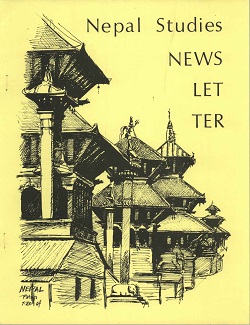Author Biography
Catherine Warner is finishing her dissertation, "States of Labor: Markets, Migrants, and Sovereignty in the India-Nepal Borderland, 1800-1930," in History at the University of Washington. She is also currently an Instructor in History at the University of Virginia.
Abstract
This paper focuses on the historical experiences of shifting cultivators who lived in the eastern Himalaya in the areas around Darjeeling, Eastern Nepal, and Southern Sikkim in the early 19th century. These groups played an important role in state-formation in the pre-colonial period, as regionally expansive states relied upon them for labor, military levies, and revenue. Shifting cultivators were organized under headmen who dispensed justice, collected taxes, and negotiated with the state on behalf of their clients. The author argues that such groups formed the basis of sovereignty on the frontier, where control over subjects was more significant than control over clearly demarcated territory. Patrons of labor were well-versed in political negotiations and dexterously managed the shift to East India Company rule in Darjeeling in 1835; however, the Company administrators changed the terms of governance, even as they drew upon the headmen’s services in accessing laborers. By positing the labor market as the appropriate means of securing labor, the Company officials denied the role of the state in accumulating labor power. In addition, colonial discourse fixed shifting cultivators as backwards and in need of protection, undermining their important contributions to state formation under the previous dispensation. By distancing itself from patron-client relationships as vital to state formation and discrediting these networks of labor organization in favor of market logic, the Company in theory moved the terms of sovereignty towards territory rather than people.
Acknowledgements
I would like to thank Anand Yang and Purnima Dhavan for their suggestions and comments on this paper and, more generally, for their intellectual guidance, and Andrew Davidson for support and encouragement with the writing process. I would also like to thank Sara Shneiderman for her insightful comments on an earlier version of this article, presented as a paper at the Modern South Asia Workshop at Yale. The anonymous reviewers' comments were also much appreciated.
Creative Commons License

This work is licensed under a Creative Commons Attribution 3.0 License.
Recommended Citation
Warner, Catherine. 2014. Flighty Subjects: Sovereignty, Shifting Cultivators, and the State in Darjeeling, 1830-1856. HIMALAYA 34(1).
Available at:
https://digitalcommons.macalester.edu/himalaya/vol34/iss1/8


